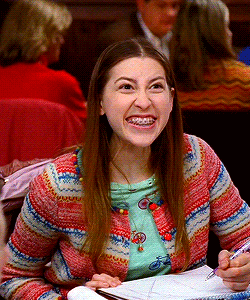I like writing about moral quandaries. I like writing about grey areas and loyalties and tough decisions. In a literary atmosphere that seems to prefer a black-and-white good-versus-evil approach, this isn't always a popular choice.
But I do it anyway. Why? Because when I read a book that asks a difficult question and then promptly answers it, I always feel a little like I'm being preached to, no matter what the "issue" is. As a writer, I like having the space to not always answer questions for my readers. If it's left open-ended, that question sticks with me for years.
That goes for books I've written, as well.
The best example would be my Laura and Mila story "I Hate Love." On the surface, this is a Valentine's Day lesbian romance for teens, but there's a vein running through this story that deals with a difficult decision the girls have to make. Actually, you could argue the story is about the decision and the love story is incidental. (I'm not sure if you'd be right, but you could argue it.)
Here's what happens: Mila and Laura are in the hall at school and they're making fun of their friend Jaden for dating an "old dude" he works with at the movie theatre. One of their teachers overhears this conversation and calls the girls over for a serious talk. See, as a professional working with minors, he's bound by law to report what he's heard. Technically, since Jaden is underage, his relationship with an older man would be considered abuse.
Now the girls have to decide: do they lie to their teacher for loyalty's sake? They don't want Jaden to get in trouble. Anyway, he's a teenager, not a little kid. He can make his own choices. Right? Even if it is kinda gross that he's dating some weird old guy. Or maybe he's not. Laura and Mila don't know the ins and outs of Jaden's personal life. Maybe he made all that stuff up...
Laura and Mila obviously want to do the right thing, but sometimes it's hard to know what's right.
So, am I taking the easy way out by not quite answering this question? I hope not, because it was (and always is, for me) a very deliberate measure.
Here's the thing: I write for a young adult audience basically the same way would for an adult audience, prosaically. After all, adults enjoy YA and I expect my reading audience to consist of a lot of adults. The difference is that, when we're dealing with issues that are in some way "moral" there can be an assumption that I'm trying to teach teens how to act and react. I'm not. I'm asking questions in hopes of getting teens (and adults) to wonder, "What would I do if it was me in that situation?"
Taking an open-ended approach is my way of circumventing the question of whether a narrative is
descriptive (showing the reader what the characters are doing) or
prescriptive (suggesting appropriate action). The longer we ruminate over a tough question, the more time we give ourselves to understand all possible perspectives.
If at some later date we happen to find ourselves in the kind of quandary we've reflected on because we encountered it in a piece of fiction, we'll be better equipped to act.
That's my take, at least. I don't have all the answers...





